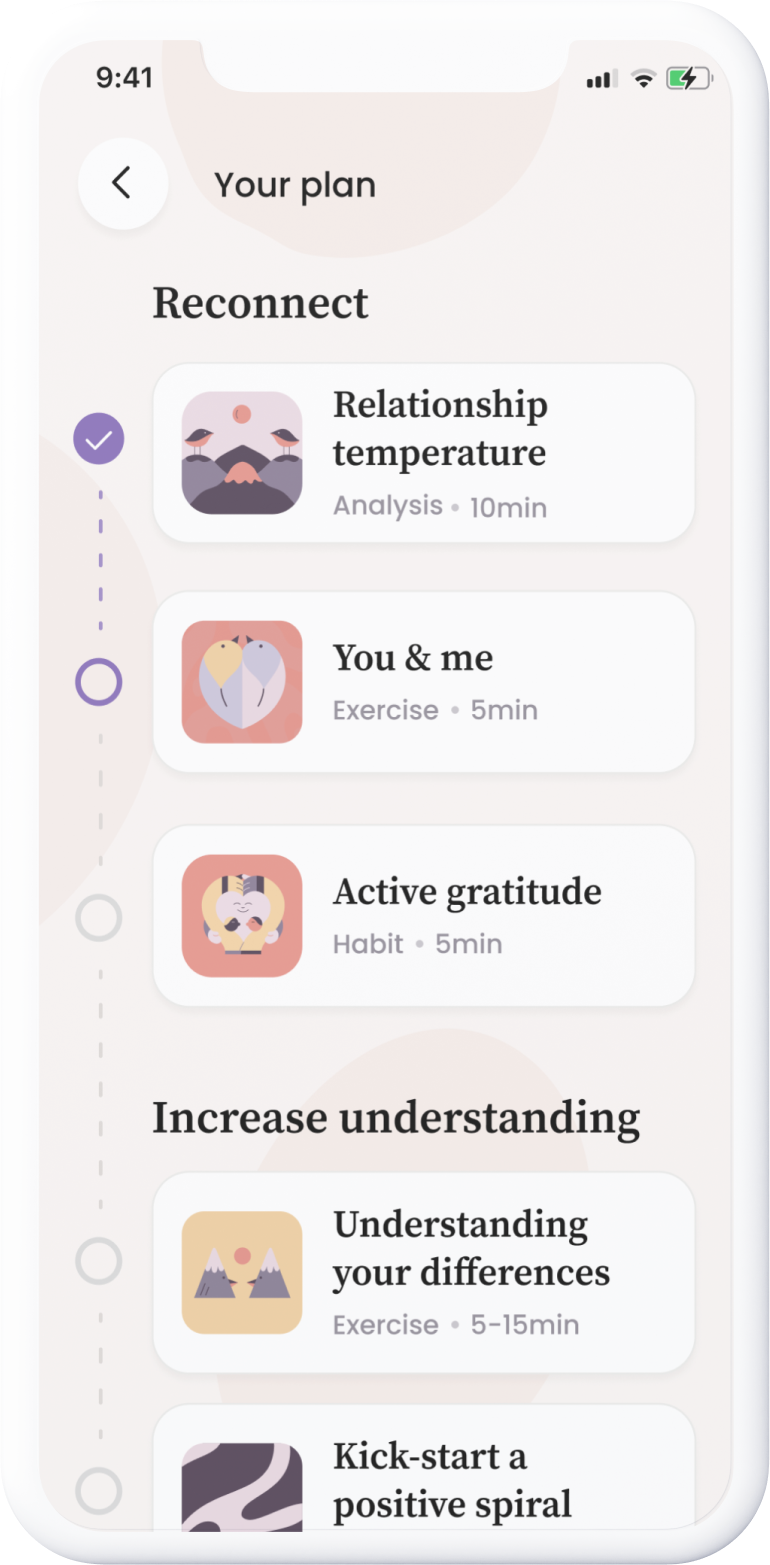Overcoming Misunderstandings in Relationships
Strategies for Dealing with Misunderstandings in Relationships- 30 April 2024
- 8min

Communication is a fundamental aspect of all relationships, including our relationships with our partners. By sharing our thoughts, feelings, and needs, we can develop a deeper understanding and build strong bonds. Unfortunately, it's not always that simple. Misunderstandings in relationships are common, and when they occur, they often create distance between us. Once they happen and we feel misunderstood, we often also feel emotionally distant from each other. In this blog post, we will explore the reasons behind these misunderstandings in relationships and how we can handle them.
Why do misunderstandings occur?
Misunderstandings in relationships can arise for various reasons. Sometimes it's due to a lack of clarity in how we express ourselves, while other times it's because of unconscious expectations and assumptions. It's easy to assume that we know exactly what our partner is thinking and feeling, even though we often have no clue. How we perceive and interpret what happens around us, including our partner, largely depends on how we feel in the moment. Therefore, we need to remind ourselves to remain curious about each other and continue communicating. Your partner is not a mind reader, although it would sometimes be very convenient.
Feeling misunderstood in a relationship
Sometimes, misunderstandings pile up and lead to a feeling of not understanding each other at all. It can be frustrating and painful to feel like we're not reaching our partner, which can negatively affect the entire relationship.
Do you often find yourself thinking, "My partner doesn't understand me!". Feeling misunderstood in a relationship is a challenge for many couples. However, it's important to remember that communication always involves both of you. So, it's not possible to say that your communication problems are only your partner's fault; both of you share an equal responsibility to reach and listen to each other. If you often feel misunderstood by your partner, it's important for you to reflect on your own role as well. Is there something different you can do in how you convey what you want to say or listen to your partner?
Handling misunderstandings in relationships
To handle misunderstandings in a relationship, we need to be aware of our own needs and be prepared to express them clearly to our partner. We also need to be receptive to our partner's needs and show interest in their perspective. By actively listening, practicing kind interpretations, and empathizing with our partner's situation, we create better conditions for mutual understanding.
1. Start with yourself
Reflect on what you perceive is the problem. When do you feel misunderstood in your relationship? Are there specific recurring situations that become challenging for both of you? What do you think contributes to ending up there?
2. Identify your needs
To be able to communicate your needs to your partner, you must first identify them. It can be helpful to take some time for self-reflection and ask yourself what is important to you. After reflecting on when you feel misunderstood in your relationship, what do you think you need?
3. Communicate your needs
Once you have identified your needs, it's crucial to be as specific as possible when conveying them to your partner. Try to be clear and provide specific examples of what you need and why it is important to you.
Speak from your own perspective when expressing your thoughts and feelings. Instead of saying, "You never..." or "You should...", you can say, "I feel..." or "I would appreciate it if...". This creates an environment for more open communication, where your partner can fully listen to you (without wanting to defend or argue against it).
The importance of listening
To what extent do you feel your partner listens to you with presence? And to what extent do you listen to your partner in that way? In other words, fully listening without simultaneously thinking about what you are going to say next, what you think about what is being said, or what you need to remember to do later. Without interrupting and interjecting with your opinion, without glancing at your phone...
True listening goes beyond just hearing what the other person says. It means being attentive to how it is said, being curious about what is being said and what is going on with the other person in that particular moment. It is the opposite of passively sitting still while the other person speaks and waiting for your turn. Real listening is, therefore, a highly active process.
It's about how you use your eyes and your body to show where your attention lies, and how you respond. It's about conveying that you have absorbed what the other person just said and that you genuinely seek understanding and reason in it.
The challenge of assuming good Intentions
In the beginning of a relationship, we are filled with hope and expectations that everything will continue to be great. We are invested in each other's needs and believe in the best of our partner. Giving each other the benefit of the doubt, making kind interpretations, is something we do automatically!
But over time, things change. Sometimes your partner wants something different from you or needs something other than what you need. We are well aware of our own efforts for the relationship but lack a peephole into our partner's inner world. This quickly leads us to draw conclusions about our partner's intentions and behaviours, especially when we are stressed or feeling down.
Research has found that as humans, we tend to see our own shortcomings as situation-dependent - but not those of others. If we forget to buy milk on the way home, it's because we had such a stressful day at work or because our mom called at that exact moment. But if our partner forgets the milk, we assume it's due to their inner qualities, that they are careless or maybe even negligent. This phenomenon is especially clear in our close relationships.
It is common and human to end up in this situation! But it also emphasizes the importance of pausing and trying to interpret our partner's actions and words with goodwill. To look for the external circumstances that may have influenced their behaviour. It may indeed be the case that your partner is careless or had something else on their mind at that moment than what you wished for, but there may also have been other circumstances contributing to how things turned out.
Being able to give each other kind interpretations is an important part of repairing misunderstandings in the relationship. If you can show understanding for each other, even when misunderstandings or hurt feelings arise, it can help strengthen emotional intimacy.
Get help to strengthen or resolve problems in your relationship
In the app Ally, you get guidance in understanding relationship problems and working on resolving them. Through the exercises in the app, you will be guided toward a stronger relationship. Ally is developed by us, licensed psychologists Clara Zelleroth and Helga Johnsson Wennerdal, to make the methods we use in couples therapy more accessible to everyone.








